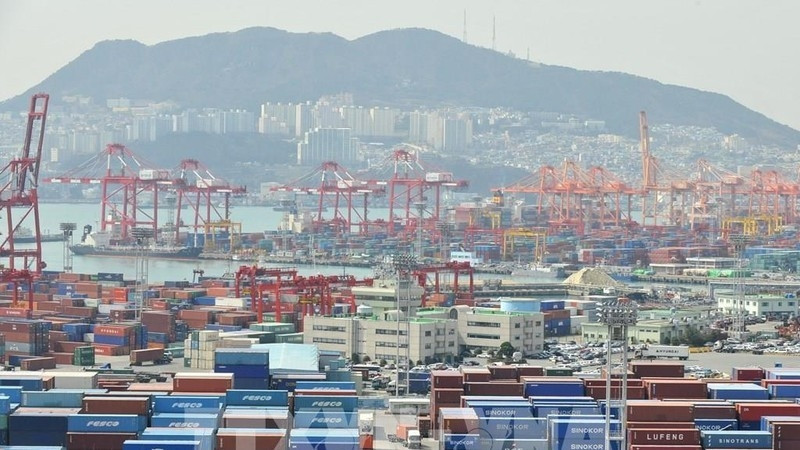According to the Korea Development Institute (KDI), the RoK’s economy faces an increasing risk of weakening due to high inflation and a worsening external economic situation, while declines in consumer spending and corporate investment have hindered the growth momentum of Asia’s fourth-largest economy.
Soaring food and energy costs pushed RoK’s consumer prices up in the second quarter of 2022, at the fastest rate since 1998. According to Statistics Korea (SK), the consumer price index from April to June was at 107.54 points, up 5.4% over the same period in 2021. Meanwhile, the won has depreciated 11% against the dollar since early this year, the lowest devaluation within the past 13 years. A stronger dollar raises concerns that investment capital will be withdrawn from the Korean market.
The growing trade deficit is also a cause for concern among policymakers in this country. RoK’s exports have slowed amid the global economic slowdown. Statistics of the Korea Customs Service said that in the first 20 days of August, the RoK recorded a trade deficit of 10.2 billion USD. If current trends continue, the country is likely to run a trade deficit for the fifth consecutive month in August.
Rising inflation pressures and concerns about an economic slowdown due to negative consumer and business sentiment, coupled with a possible slowdown in export growth threaten to derail the momentum growth of the RoK economy. Facing negative economic indicators, the Bank of Korea (BOK) is expected to hold a meeting to set interest rates on August 25, with many predicting that the BOK will continue to raise the policy interest rate by 0,25%. Last month, the BOK raised interest rates by 0.5%, the biggest increase ever to curb inflation.
This is also the 6th rate increase of the BOK since August 2021. The BOK has emphasised the need to soon raise interest rates to neutral levels to curb rapid inflation. According to experts, a sharp increase in interest rates can hurt economic growth, but this is inevitable to bring medium and long-term macroeconomic conditions to a stable level.
To control inflation and stabilise the macro-economy, the RoK government is implementing a policy of “austerity” with the expectation of cutting budget spending next year. According to the RoK’s Ministry of Economy and Finance, the 2023 budget will be lower than this year’s 679.5 trillion won (520 billion USD). This will be the first time in the past 13 years that the RoK’s budget expenditure has decreased compared to the previous year. The government also plans to review the salaries of ministers and deputy ministers and that these officials will have to pay back about 10% of their income.
The RoK’s National Assembly has set up a special committee in charge of stabilising people’s livelihoods, with plans to handle various bills on real estate, taxes and other issues. To reduce the burden of paying energy bills for people, the government continues to reduce fuel taxes, thereby raising the tax cut on fuel consumption to the legal limit of 37% from 30%. The RoK’s government also decided to lower tariff quotas on seven food ingredients, including pork and cooking oil, to 0% until the end of this year, as one of the current price stabilisation measures.
The RoK’s economy is facing many challenges and it will not be easy to achieve the target of keeping economic growth in 2022 at 2.6% as forecasted. Prioritising macroeconomic stability and people’s livelihood is the top priority task of the RoK Government today. This country is determined to prevent inflation and focus on recovering exports and increasing investment, as well as expanding production to restore economic momentum and cope with economic uncertainties.
The RoK government has directed ministries and sectors to provide comprehensive support in finance, logistics and marketing, to maintain the growth momentum of exports, while the Ministry of Economy and Finance is expected to give the overall direction of the economic policy and the establishment of response plans using budgetary tools and the tax system to regulate exports.
















